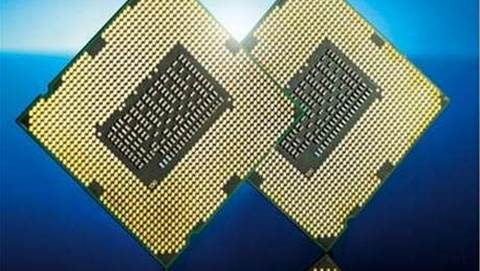There’s a Spectre of a Meltdown…
Last week, Intel began to roll out software patches and firmware updates for two security faults discovered by the Google’s Project Zero security team. The hardware level faults effect practically ever processor they have produced in the last 5 years.  Collectively, Meltdown and Spectre affect billions of systems around the world – from desktop PCs to smartphones.
Collectively, Meltdown and Spectre affect billions of systems around the world – from desktop PCs to smartphones.
Meltdown, a bug that could potentially allow a hacker to read the operating system kernel memory, is present in Intel and Qualcomm processors, and one type of ARM chip. Intel has already released patches for recent versions of Windows, Android, macOS, iOS, Chrome OS, and Linux.
The second bug, Spectre is much harder to protect against. This affects processors from Intel, ARM, AMD, and Qualcomm. Browsers like Chrome, Firefox, and Edge/Internet Explorer have already had preliminary Spectre patches, as do some operating systems.
There are two areas of concern for the Spectre and Meltdown faults. Firstly, there’s the security concerns: both Meltdown and Spectre potentially allow access to private data that is normally concealed. Although there have been no reported incidents of these security flaws being exploited so far, and in practise security experts believe they are very difficult to take advantage of.
Secondly there is also the possibility that patches will slow down PCs, particularly for processor intensive tasks. This is due to the patch changing how the processor will perform certain tasks to avoid the possibility of exploiting the vulnerabilities. Intel, however, maintain that the average user will be only slightly affected, and reports of a 30% slow down are untrue.
Eurosoft found that neither of these hardware issues would be identified as failures when running the diagnostic software, such as Pc-Check® Windows™ or Pc-Check®.
“You can be assured that the processor test results in our diagnostic solutions remain accurate, and should there be any need to adapt the tests to take into account any modified behaviour from security patches, these will be included in future upgrade releases of out products,” commented the Eurosoft technical support team.
Eurosoft is recommending that servers be tested as a matter of course to ensure there are no physical errors affecting slowdowns or other potential or associated hardware problems. Gathering diagnostic reports, particularly test analysis performed from an independent program resource – not the internal system – will assist in alleviating doubt of any computers’ working hardware. We recommend that you install all security patches for your affected devices. Although there is potential for these to cause devices to slow down, this, in our view, is preferable to the risks and compromise to security that Meltdown and Spectre pose.
Intel’s published list of affected processor chips:
Intel Core i3 processor (45nm and 32nm)
Intel Core i5 processor (45nm and 32nm)
Intel Core i7 processor (45nm and 32nm)
Intel Core M processor family (45nm and 32nm)
2nd generation Intel Core processors
3rd generation Intel Core processors
4th generation Intel Core processors
5th generation Intel Core processors
6th generation Intel Core processors
7th generation Intel Core processors
8th generation Intel Core processors
Intel Core X-series Processor Family for Intel X99 platforms
Intel Core X-series Processor Family for Intel X299 platforms
Intel Xeon processor 3400 series
Intel Xeon processor 3600 series
Intel Xeon processor 5500 series
Intel Xeon processor 5600 series
Intel Xeon processor 6500 series
Intel Xeon processor 7500 series
Intel Xeon Processor E3 Family
Intel Xeon Processor E3 v2 Family
Intel Xeon Processor E3 v3 Family
Intel Xeon Processor E3 v4 Family
Intel Xeon Processor E3 v5 Family
Intel Xeon Processor E3 v6 Family
Intel Xeon Processor E5 Family
Intel Xeon Processor E5 v2 Family
Intel Xeon Processor E5 v3 Family
Intel Xeon Processor E5 v4 Family
Intel Xeon Processor E7 Family
Intel Xeon Processor E7 v2 Family
Intel Xeon Processor E7 v3 Family
Intel Xeon Processor E7 v4 Family
Intel Xeon Processor Scalable Family
Intel Xeon Phi Processor 3200, 5200, 7200 Series
Intel Atom Processor C Series
Intel Atom Processor E Series
Intel Atom Processor A Series
Intel Atom Processor x3 Series
Intel Atom Processor Z Series
Intel Celeron Processor J Series
Intel Celeron Processor N Series
Intel Pentium Processor J Series
Intel Pentium Processor N Series

